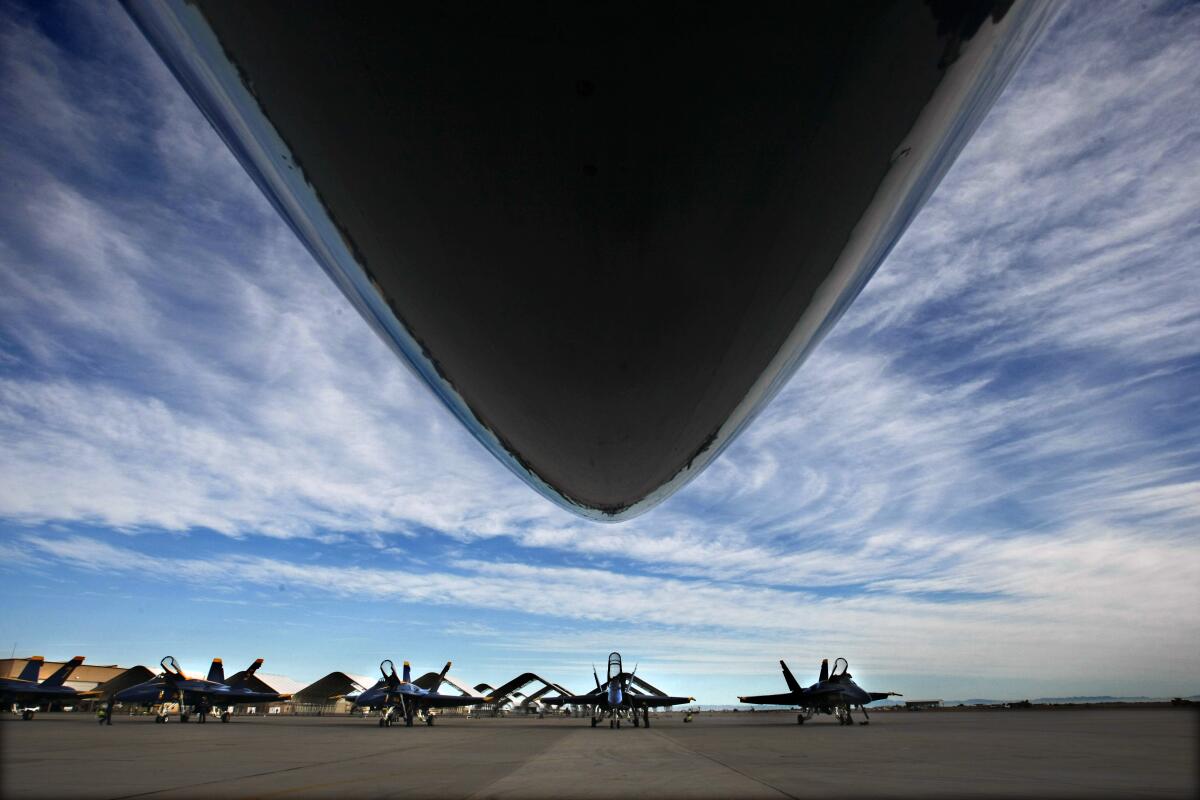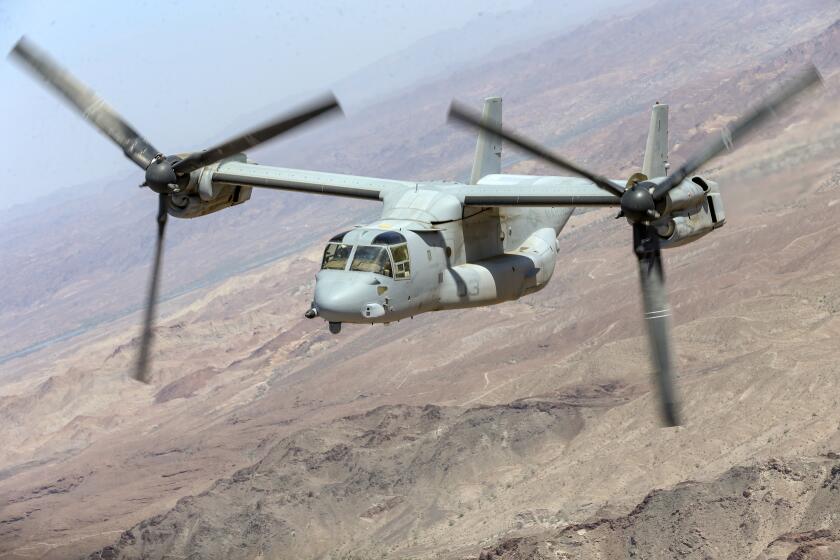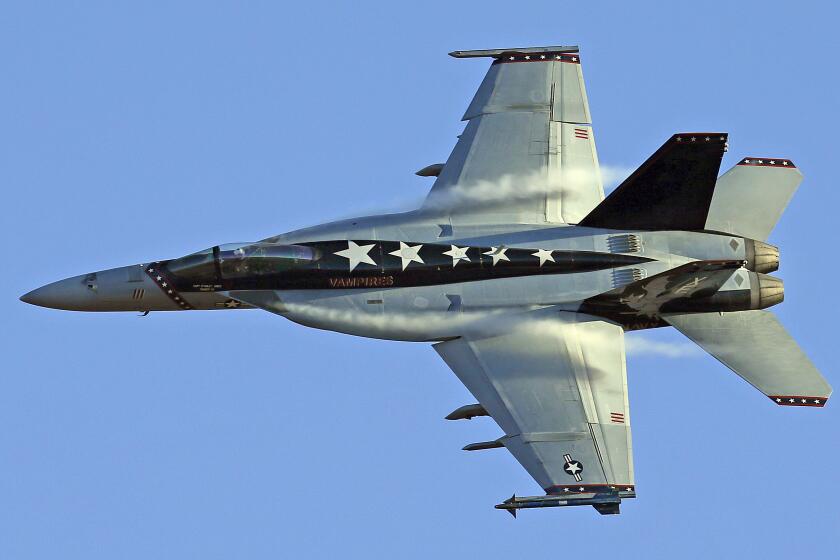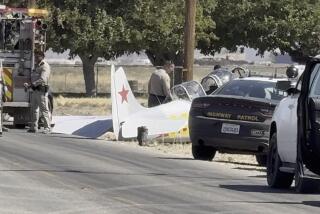Another military craft crashes in California desert; 1 hurt in Navy helicopter accident

A Navy helicopter crashed in Imperial County on Thursday evening, less than 48 hours after a Marine Corps aircraft went down in the same county, killing all five Marines on board, according to authorities.
The incident follows several other crashes nationwide and has resurrected concerns about military aviation safety — including from members of Congress — that go back several years.
An Imperial County Fire Department representative told The Times that firefighters were called at 5:43 p.m. to Highway 78 near Palo Verde for a report of a military aircraft down.
The representative declined to share his name when asked.
Military personnel were also responding to the scene, he said.
“I can confirm that a U.S. Navy helicopter crashed today on a U.S. Navy training range near El Centro, Calif. according to our initial reports, all four of the air crew on board survived the crash,” according to a statement by Cmdr. Zach Harrell, a Naval Air Forces public affairs officer.
“One of the aircrew has suffered a non-life threatening injury and has been transported to a local hospital.”
All five Marines aboard were killed in the crash of an Osprey aircraft during a training operation near Glamis, Calif., on Wednesday, authorities say.
The helicopter, an MH-60S Seahawk, crashed while conducting a routine training flight from Naval Air Facility El Centro, Harrell said in a later statement. He said the helicopter was assigned to Helicopter Sea Combat Squadron (HSC) 3, based at Naval Air Station North Island in San Diego County.
On Wednesday, an MV-22B Osprey crashed during a training mission near Glamis, and all five Marines aboard the Osprey tiltrotor aircraft were killed.
The aircraft was based at Marine Corps Air Station Camp Pendleton with Marine Aircraft Group 39 and crashed around 12:25 p.m. near Coachella Canal Road and Highway 78.
Contrary to reports on social media and early radio calls from the scene by emergency responders, there were no nuclear materials onboard, Cpl. Sarah Marshall, a spokesperson for the 3rd Marine Aircraft Wing, said Wednesday.
Military personnel are recovering debris from the crash, and an investigation into the cause is underway.
The Osprey can take off and land like a helicopter and fly like an airplane by pivoting its rotors.
Early proponents argued it would revolutionize warfare because of its tiltrotor capabilities, but it became embroiled in scandal during testing after a series of fatal crashes.
In addition to those lost in the Osprey crash, another member of the military died this month in a Southern California aircraft crash. Lt. Richard Bullock, a U.S. Navy pilot, was killed on June 3 when his F/A-18E Super Hornet crashed in the desert, in the general area of Trona, the Navy said in a statement.
On June 6, two aviators were injured when an AH-64 Apache helicopter crashed near an Army base in southern Alabama, officials said. In March, a U.S. Marine Corps MV-22B Osprey crashed in Norway and killed four.
The Navy said one of its fighter jets crashed in the Southern California desert, killing the pilot. Nobody on the ground was hurt.
Spurred by this series of crashes, Congress may tighten requirements on the military’s aviation safety reporting, according to Defense One, a military news site.
In a news release Wednesday, the House Armed Services Subcommittee on Readiness made several proposals to the Fiscal Year 2023 National Defense Authorization Act, including two aimed at military aircraft safety. One requires the deputy Defense secretary to report annually on findings from a joint aviation safety council that Congress has required under law but that the Pentagon has not yet created.
Times staff writer Nathan Solis contributed to this report.
More to Read
Sign up for Essential California
The most important California stories and recommendations in your inbox every morning.
You may occasionally receive promotional content from the Los Angeles Times.













